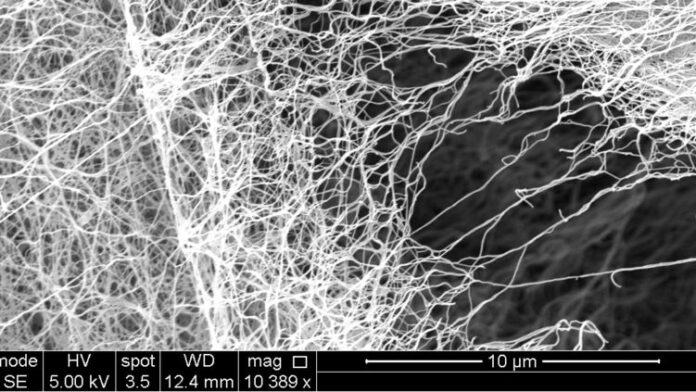Having developed a range of bio-based materials with the potential to replace non-recyclable plastics in packaging applications, scientists at the University of Sheffield are now making progress on up-scaling production of a selection of these materials in preparation for potential commercialization. Due to the high annual consumption of polymers/plastics, green, biodegradable and biocompatible polymers are in high demand both for bulk applications and for medical applications (University of Sheffield, 2021).
The ECOFUNCO project involves institutions from around Europe working on the development of eco-friendly bio-based coatings which can be used in applications including food packaging, personal hygiene, disposable food and drink containers and non-food packaging. The aim of the project is to create coatings that exhibit improved performance compared to existing products, but with more sustainable end-of-life options. The research taking place at the University of Sheffield, led by Professor Ipsita Roy of the Department of Materials Science and Engineering, centres around the development of the base materials for the green coating formulations (University of Sheffield, 2021).
Cellulose is the most widely-available renewable material on Earth. Using cellulose-derived materials to replace fossil-based plastics in a range of consumer products, such as disposable food products or personal care items would make a considerable contribution to Europe’s environmental ambitions (University of Sheffield, 2021).
However, because cellulose materials in their current form have some limitations (such as poor barrier properties), they are often mixed with polyethylene, which limits its recyclability and undermines the environmental benefits. That is why alternative bio-based coatings are being developed to achieve the properties required. It is the combination of the substrate and the coating that will lead to the use of biodegradable, biocompatible and environmentally friendly materials in packaging applications where today non-recyclable materials are used (University of Sheffield, 2021).
The materials under development in the Sheffield labs fall into two classes: Bacterial Cellulose and Polyhydroxyalkanoates (PHAs).
Bacterial Cellulose is produced by bacteria, as an extracellular polymer in the form of a pellicle, or a thick layer. It is highly biocompatible and biodegradable, and possesses hydrogel properties which make it suitable for use in medical applications, eco-friendly coatings, and as a substitute for paper substrates without the need for further purification. It has a highly porous and crystalline nanofibrillar structure, has high water holding ability, hydrophilicity and excellent mechanical properties (University of Sheffield, 2021).
PHAs are polyesters produced as intracellular granules by bacteria and can be produced using low value substrates such as waste frying oil, agricultural waste, biodiesel waste and municipal waste. The polymer is produced by bacterial fermentation followed by extraction of the polymer from freeze dried cells. These polymeric materials are environmentally friendly and biodegradable in both soil and marine environments, recyclable, and have a range of mechanical and thermal properties. The low melting elastomeric PHAs are excellent for packaging and coating applications. PHAs are also highly biocompatible and bioresorbable, hence are highly promising medical materials (University of Sheffield, 2021).
Personal notes:
It is interesting to find this news because it shows that engineering is also working to make biobased materials viable. They are trying to establish a profitable production model. In addition, from engineering, the materials are characterized by providing necessary information to understand the material’s behavior and possible uses. Bacterial cellulose and PHAs are materials with sufficient information to carry out studies in different applications. They are viable options to work with.
University of Sheffield. (2021, August 5). Developing bio-based materials for a greener world. The University of Sheffield. Retrieved January 27, 2023, from https://www.sheffield.ac.uk/materials/news/developing-bio-based-materials-greener-world




